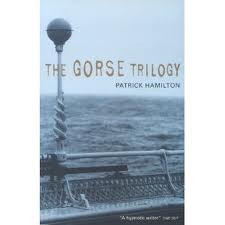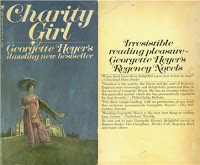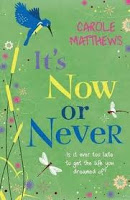
This came to me in the way I best like books to come: randomly. Someone else picked it out for me at the library.
The author’s voice was naggingly familiar, and eventually I placed it: it’s Patrick Hamilton! He wrote the fairly fabulous HANGOVER SQUARE, which I blogged earlier this year. (Here it is).
THE WEST PIER is the first in a trilogy of novels based on a real life confidence man, Neville Heath. It begins by telling of his time at school, and his love of ‘mischief’ – for example, he always carries a long pin about with him, so he can make punctures in the wheels of any bicycles he finds unattended. He attends a rather posh public (or private, depending on the country you’re reading this in) school, and is generally sheilded from the consequences of his actions. The story then catches up with him as a young man just after the First World War, and tells how he manages to defraud a working class girl of her life savings (£68; a great deal to her, and not very much to him) simply for the thrill of it.
Much that appealed about HANGOVER SQUARE also appeals about THE WEST PIER. There a sort of coldly comic edge to it which is often hilarious. Like this bit of schoolboy conversation in a changing room:
“You’d better not accuse me, you know” said Kerr, now anxious to be accused, and endeavouring to create the allusion that this had already happened. “Because I’ll jolly well punch your nose.”
“And you’d better not accuse me either,” said another boy named Roberts, perceving and rushing with all his belongings towards the glorious Yukon of quarreling with Kerr had discovered. “Or I’ll jolly well punch your nose too.”
For some reason, I just love that about the Yukon. Or this, about these same boys as young men in their early twenties:
All these boys were, of course, in what is deceptively called the ‘morning’ of life – deceptive because the vigorous word ‘morning’ does not at all suggest the clouded, oppressive, mysterious, disquieted, inhibited condition through which the vast majority have to pass at this age.
I don’t know if that’s so much funny as it is sadly true. And this is I think the reason I can’t really say I enjoyed this book. It’s written with great clarity, truly remarkable insight into human behaviour, and with painfully accurate analysis of how people act in social situations; but it’s all rather sad. The con man is a clever, cunning, and unpleasant man. His victims are greedy, vain, and rather credulous. These people are drawn clearly and intelligently, but I wasn’t sure to what effect. The bad man tricked the stupid people. That was basically it.
Perhaps I’m being rather Victorian about it all, but I didn’t really get the point. It was all rather sad and defeated, and no one emerged well or was any the wiser from their experiences.
I believe poor Mr Hamilton ended his life an alcoholic, and I think I would drink too if I found the world so very full of evil and idiocy. In fact, I might just go have a drink right now. I’m not sure how else I’ll get through the rest of the trilogy.









